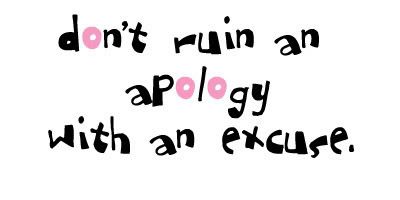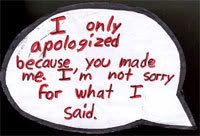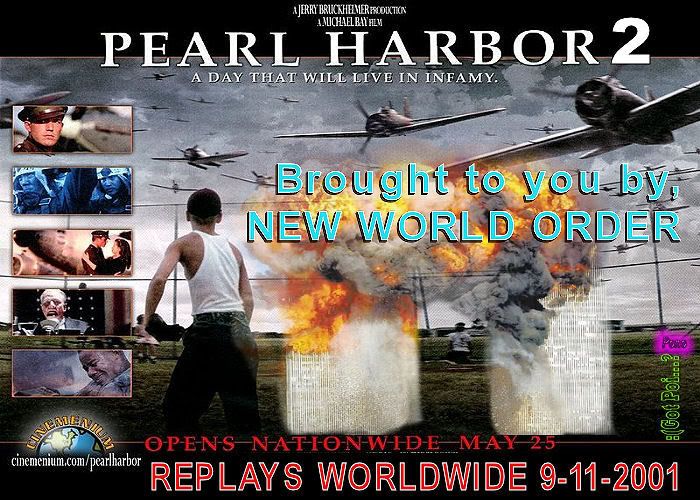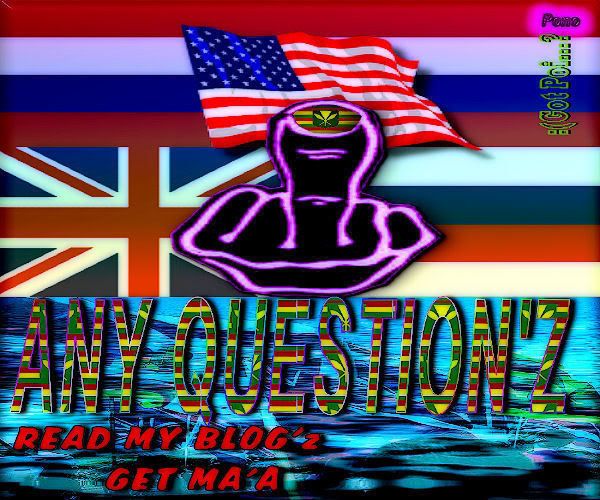All Posts (6434)
It has been a busy month! We are so grateful to all the people who continue to work so hard to help protect Hawaii's unique environment and cultural heritage. We have shown time and again that when we stand together we can make a difference for our public trust resources.
1.House Ag Committee Destroys Protective Intentions of SB958 on Thursday
In the face of a historic outpouring of support for the genetic integrity of Haloa, a majority of Agriculture Committee members chose corporate biotech interests over those of Hawai'i's traditional famers yesterday. Last month, over 7,000 people from all corners of our community submitted testimony in support of a 10-year moratorium on the genetic modification of Hawai'i's most traditional and sacred food source, taro. Community members have concerns about the potential environmental impacts, unknown health consequences, and cultural impacts of genetically modifying taro. Here in Hawai'i there is clear and strong opposition to the fundamental and irreversible modification of the genes of taro, a sacred geneology.![[image: growing strong - organic loi on Oahu]](http://salsa.democracyinaction.org/o/2699/images/waiahole%20mauka%20loi%2001.jpg)
YET, in a 9-to-3 vote, the committee amended the bill to prohibit any future bans or regulations on any GMO products, even at the county level.They also cut the moratorium to 5 years and limited the protections to cover only the Hawaiian varieties of taro. But with these amendments Haloa will not be protected.Now, other varieties of taro, like the popular Bun Long variety, can still be genetically altered, cross-pollinate with the Hawaiian varieties and spread genetically modified genes into our ecosystems. More startling, another amendment to the bill also robs counties & local communities of their ability to address GMO concerns in their own neighborhoods.
We are not giving up. The kuleana to protect elder brother, Haloa, is also a kuleana to protect our lives and way of life! We stand with the taro farmers and the thousands of people who voiced uncompromised support for protecting Haloa. There are still four weeks left in the Legislative Session- anything can happen.Learn more at the website and on the KAHEA blog.
Prepare to take Haloa to the polls and PLANT YOUR VOTE! Click here to register to vote. Be a part of Growing Change in Politics! We are woking to put together information for you on which candidates truly Malama Haloa--please stay tuned!
2.State can uphold Marine Protections for Navy Expansion Proposal in NWHI, but will it? Your voice needed!![[image: missile launch from the sacred sands of Nohili on Kaua'i]](http://salsa.democracyinaction.org/o/2699/images/b_ballistic_missile_testjpg_1.jpg)
In 2006, the Northwestern Hawaiian Islands were set aside as the first-ever marine national monument - the largest, most-protected marine reserve on earth. In the face of plans to open the area to increased human activity, six years of your persistant public pressure resulted in the creation of a true pu'uhonua (refuge) for the highly endangered Hawaiian monk seal, green sea turtles, millions of rare seabirds, and acres of fragile coral reefs.
But now, those protections are in jeopardy. The U.S. Navy is proposing missile launches, experimental weapon and vehicle tests, and other inappropriate military maneuvers in the NWHI. Still yet, the co-managers have not invoked the 'minimize and mitigate' requirements of Monument regulations. Your voice is needed! The opportunity to fulfill our promise to fully protect Papahanaumokuakea begins now and will continue throughout the summer.
Today, you can help to empower the state in protecting all of our coastal resources - including the NWHI. The Coastal Zone Management Act can require the Navy to modify its proposed exercises to be consistent with Hawai'i's coastal protections to the maximum extent practicable. To do this, we are asking the State to require the Navy to prevent missiles flying over Papahanaumokuakea, limit the use of active sonar, and halt live-fire training where the contamination threatens public health.Click here to express your support for the our coastal protections to Hawaii's Coastal Zone Management Program. The comment deadline is Monday, April 7th.
And watch for updates about the Papahanaumokuakea Monument Management Plan coming out later this month. Stay involved!! This will be another key opportunity to ensure the people's Monument is fully protected, including a citizen advisory council and a publicly accountable permitting process.
![[image: Uncertain Peril book cover]](http://salsa.democracyinaction.org/o/2699/images/book_sm.jpg) 3. The story is being told, and you can participate first hand.Meet Claire Cummings, author of "Uncertain Peril: Genetic Engineering and the Future of Seeds" on April 14!
3. The story is being told, and you can participate first hand.Meet Claire Cummings, author of "Uncertain Peril: Genetic Engineering and the Future of Seeds" on April 14!
"Uncertain Peril" tells the stories behind the rise of industrial agriculture and plant biotechnology, the fall of public interest science, and the folly of patenting seeds. Two chapters explore how biotechnology impacts Hawai'i and examines the vision of a Hawai'i that can feed itself. It explains how a more abundant future can be achieved and celebrates the innovations of local and indigenous communities who are building food systems based in a respectful relationship between people, plants, and place.
Come meet Claire Cummings - a farmer, lawyer, and journalist, who has worked extensively in Hawaii, California, and Vietnam, as well as in food policy as a former attorney for the U.S. Department of Agriculture. Learn more about what is at stake in the genetic modification of our food.
.. ..Claire will be speaking in Honolulu on April 14th. She will address how genetic engineering of kalo (all species of taro) is a very serious threat to Hawai'i's future. Claire's book and other resources on GMO and Hawai'i will be available.Come join us!.. ..Monday, April 14, 2008
6:30-8:30 p.m.
University of Hawaii at Manoa Law School Courtroom
Sponsored by KAHEA and Hawaii S.E.E.D.
.. ..You can visit www. kahea. org/gmo and KAHEA's blog for information about genetic engineering and what you can do to protect taro.
As always, mahalo nui loa for your participation and for adding your voice to the thousands who seek a vision of a different, better future for Hawai'i nei. This shared belief in a better future is at the heart of this movement for change. Mahalo for taking part.
A hui hou,
Us Guys at KAHEA
----------------------
KAHEA: The Hawaiian Environmental Alliance
kahea-alliance@hawaii-rr.com
1 (888) 528-6288
http://www. kahea. org
http://blog. kahea. org
E ho'omalu kakou i ka pono, ke 'ano o ka nohona a me ka 'aina mai na kupuna mai.
Protecting Native Hawaiian Traditional and Customary Rights and Our Fragile Environment
How to Eat Crow...
Current mood:  betrayed
betrayed
Category: WOW. How you treat people is how you show you valu Friends
definition of apology / definition of apologize

apologize
To make an apology.
apology
In interpersonal manners, an acceptance of responsibility for a wrong, plus a pledge to change one’s ways. The wrong may be either intentional or accidental; an apology is fitting in either case. The apology is usually made to the person or persons wronged, but may also be made to any third party to whom the wrongful act was evidence of untrustworthiness. The purpose of an apology is to put the listener at ease regarding the trustworthiness of the apologizing party.
An apology is not complete if it does not reflect all fo
four of these:
regret, understanding of the problem, acceptance of responsibility, and willingness to do better.
These are the necessary ingredients of a strong and reliable behavioral curb, a self-imposed restriction which the offender agrees to live by. It’s your best guarantee and assurance that the behavior will not happen again (in fact, that’s the whole purpose of an apology). If you don’t hear all of the above elements in the apology, ask for them. If the offender resists, be skeptical.

Apologies to Watch Out For
- Backpedaling: Beware of people who apologize sincerely, but later back away from their apologies, bringing up the disagreement over and over in statements like "You hurt me when you corrected me," as though your correction of them was not deserved or was some kind of original offense against them. Be suspicious of people whose annoyance (at being corrected) outlasts their remorse.
- The "Iffy" Apology: "I’m sorry if I hurt you." Beware that word "if," which means "Your pain is still hypothetical to me, not something I’m convinced of." It’s sometimes meant to call your perceptions into question, and to suggest that maybe you’re overreacting. If there’s no "if" about it, say so.
- "I Don’t Know What I Did": Beware the ones who apologize but claim not to understand what they’ve done wrong (even though you’ve explained it perfectly well). Their remorse is probably sincere, but they have no idea what to avoid doing in the future, and so, your trust in such people would be misplaced.
- The Attitude Apology and The "But" Apology: Any apology of the form "I’m sorry, but ____."
Examples:- "I’m sorry, but you have to understand....";
- "I’m sorry, but I was right to do that";
- "I’m sorry, but you ____";
- "I’m very sorry I did that, but I’ve moved on."
One thing I’ve learned about "I’m sorry, but" is that nothing before the "but" can safely be taken literally.
Remember that forgiveness only happens when someone regains your trust. And not until. Remind the offender of this, if necessary. People who value your trust (as the favor it is) are called friends, and will show concern for your happiness.

Fake Apologies and How to Recognize Them
While a true apology shows concern for the receiver, many fake apologies begin with "I’m sorry" but end with a point that is completely incompatible with remorse. Standing by what you did is not remorse, therefore not an apology.
- Demanding to be forgiven is self-serving. A good general formula to help you recognize non-apologies is "If it’s self-serving, it’s not an apology."
- Changing the subject is not an apology: "Well, what about what you did?" Changing the subject indicates an unwillingness to apologize.
- Verbal abusers often show resistance to apologizing. Continuing to insist that what you’ve done was not verbal abuse somehow, or that verbal abuse is somehow not wrong, or that Wrong is somehow relative -- that’s not an apology. The point of apologizing is not to say that the crime still feels reasonable to you.
- "I’m sorry but ____" is not an apology, because it does not communicate an understanding that you did wrong.
- Any blaming of the receiver’s perceptions: "I’m sorry you perceived that I ____." Calling someone delusional is a tactic, not an apology. See Gaslighting, Definition of.
- "You misunderstood." Pretending that your words didn’t mean what they mean, i.e. pretending that your words don’t have literal meaning, is not an apology.
- "I’m sorry you misunderstood" is a more blatant, in-your-face form. Most often, when someone says "I’m sorry you misunderstood," neither is true.
- Calling the receiver "ungrateful" for not instantly forgiving. In general, calling the receiver ethically defective, perceptually defective, etc., are not apologies, but are forms of gaslighting.
- "But I didn’t do it on purpose!" The universal excuse of good intentions isn’t an apology; it’s an excuse for doing more of the same, for continuing to offend. It’s a childish belief that one can continue acting in a hurtful way as long as there is some nebulous "good intention" involved. Hitler apologists like to make use of this one, often in the form "He was only doing what he thought was best for his country, and that’s not so evil, is it?" Yes, in fact, it is. Don’t be taken in by excuses that look at the problem through the wrong end of the binoculars. Any offense can be described from such a high level that the problematic details conveniently disappear. But the motive behind the search for such a viewpoint isn’t really remorse, is it?
- Saying "I don’t see the connection between my actions and your reaction" is not an apology. It’s a denial of responsibility. It’s a suggestion that the hearer overreacted.
- "I’m sorry [but] you ____" is not an apology. It’s a blame-shift.
- "I’m sorry you got all offended" is not an apology. It’s a slap. It’s a technique for adding insult to injury.
- "I’m sorry you feel that way" is not an apology.
- "I want to apologize" is no more an apology than "I want to lose weight" is a diet.
- "I’m sorry about what happened" is not an apology, any more than saying "I hate when that happens." When someone says "I’m sorry about what happened," consider answering, "And...what was that, exactly? I’d just like to be sure we’re on the same page." People have been known to completely miss the point and apologize for the wrong thing.
- Variant: "I regret that it happened." Referring to one’s actions as "what happened" is not an apology because the speaker is not taking responsibility. There are two kinds of phenomena: those which "just happen" (earthquakes, tornadoes, old trees falling down in the wind) and things which are caused by deliberate, chosen actions (like the house damaged by a tree which falls when a drunk driver collides with it). Of course, the drunk driver will usually claim "It was an accident," as if to say "I wasn’t the cause." This is merely propaganda, designed to trick the gullible.
- "I’m sorry for what I did" is an improvement. Still, it leaves things unsaid; it doesn’t specify what the speaker did, perhaps even conceals it on purpose, perhaps because the speaker doesn’t understand or agree that what he/she did was wrong. What a pronoun is to a noun, this statement is to an apology. A complete apology is not vague; it doesn’t say "I’m sorry about...that thing I did." If the parties don’t agree as to the nature of the error, they don’t agree as to the meaning of the apology. The promise inherent in the apology has been left blurry.
One sometimes sees this method used between nations. The thought process seems to be, "How small an apology can I offer while still causing the receiver to think I feel remorse?" - There are other ways of distancing oneself from responsibility. "That’s in the past" is an assertion that the passage of time is a substitute for an apology. It’s a suggestion that one is entitled to hurt others as long as no one notices for a very long time.
- "We’ve both said unfortunate things" is not an apology. It’s an accusation. It’s inflammatory. It’s an attempt to shift the spotlight.
- "I’m sorry about that. And now, isn’t there something you’d like to say to me?" An apology is not a quid pro quo -- reciprocation is not required, unless wrongdoing occurred in both directions. But if not, only an uncivilized person would apologize to you as a way of forcing an apology out of you.
- Deathbed apologies are not necessarily real. Real apologies are not triggered by intense emotions or deadlines or expediency. True apologies are motivated by "I’m sorry for what I did," not "I’m sorry we weren’t close, I wish I could figure out why we weren’t."
- "Of course I’m sorry" contains just a hint of annoyance. It’s a bit like saying "Am I sorry? What a silly question. What are you, stupid?"

Lectures Are Not Apologies.
Lecturing the victim/receiver is a particularly aggressive and defiant form of blame-shifting. Examples:
- "Everybody makes mistakes" is not an apology. It’s an assertion that apologies shouldn’t be necessary. It’s roughly equivalent to saying "Get over it" and "Grow up" and "Start learning how the world works." It’s a form of talking down to people.
- "People make mistakes." Lectures aren’t apologies. Basic pabulums accuse the listener of being simple-minded.
- "You know, relationships are based on trust. If you won’t forgive me and start trusting me again, then I don’t know how we can have a relationship." Beware of people who refuse to prove themselves trustworthy. Beware of people who think forgiving them means you are the one who has to do all the work and all the changing.
- "My religious Book says you have to forgive me." Again, self-serving remarks are not apologies.
- Any suggestion that the victim needs to learn something, like a lesson or a skill (for example, not to overreact) is not an apology. An apology would be "I’m sorry I hurt you; *I* will learn from this."
- "Get over it" and "Get past it" are not apologies; they’re attempts to trivialize the offense and to display unconcern for the hearer, to tell him or her "You are alone in this and nobody gets you."
- "You need to learn to let go" is a lecture, is mildly pathologizing, is patronizing (a form of talking down) and is a kind of gaslighting.
- Saying "Forgiveness is a choice!" is not an apology. Repentance is a choice too, and so is the lack of it.

How to Apologize: Stick to the Formula.
Apologies are learned behaviors; people don’t naturally offer apologies unless they know or have been taught the methods for apologizing: when to apologize, how to apologize, and how not to apologize.
Apologies would be so much easier if people would stick to the formula. "I want to apologize," they say, "but first I just want to add ONE more thing!" So they begin by giving you a brief apology, but then they botch it by adding something, like:
- "You’re not perfect either, you know" (plus examples)
- How disappointed they are in you, (and here’s why). OR
- How disappointed they are in you, for presuming to correct them.
These are acts of defiance, not humility, and virtually guarantee that the apology will leave a bad aftertaste.
An apology has a beginning, a middle, and most importantly, an end. When you wish to apologize, just do it, and stop there. If you continue talking after you apologize, you’ll sound insincere. Do not tack on statements of conceit or propaganda to the effect that you’re a good person -- That little voice that tells you to continue talking after the apology is the same voice that would have you believe It’s All About You. You cannot simultaneously rub someone else’s back and polish your own halo.

An Apology Does Not Require:
- Groveling. Some offenders have a mindset in which only God and the powerful deserve a sincere apology.
This mindset believes an apology is something given by an underling to an overlord -- that apologies are only about power, not about the restoration of relationships between equals. To them, an apology is a sign of submission.
Absolute power creates absolute attitude. Look for this attitude in those who think little people like you don’t deserve any apology, ever. And look for it in the friend who’s been waiting for the opportunity to seize control of the relationship.

An Apology Does Not Include:
- Belligerence. Saying "I’m sorry!!!" in a yelling, belligerent, or aggressive tone is certainly not very apologetic. Rather, it’s a demand that the recipient back down. It’s a threat which says "If you don’t drop the matter, I’ll raise the volume level."
- Indignation. A real apology does not include indignation at having to apologize.
- Trivialization. The words "I simply said" followed by a sanitized paraphrase of what the offender really said is not an apology, but a smoke screen.

Before Accepting any Apology
Before accepting any apology, ask yourself: "Which of the following did I see?"
- annoyance
- blame shifting and suggestions that you misunderstood or overreacted
- remorse
The less remorse you see, the more likely you are dealing with someone who doesn’t value your friendship, doesn’t fear losing it, and wouldn’t be sorry to see you go. You may wish to adjust your own efforts at reconciliation accordingly.
This advice holds true no matter who was at fault. Normal people, even blameless ones, will feel some guilt or dread at the thought of losing your friendship; but persons who show you defiance and attitude are feeling neither of those. Dread and guilt show you that there is a bond; that bond is the "glue" necessary to hold the friendship together until it mends.
Sadness, grief and mourning are the normal reactions to the anticipated loss of a valued friendship. Annoyance, on the other hand, is what people feel when a computer crashes, or a pen runs out of ink, or a car fails to start; in general, whenever something that is there to be used doesn’t do its job.
5th edition. 07 Apr 2007
about the author much of this was abriged from:
J. E. Brown, relationship activist, decided in 1987 that verbal abuse will be wiped off the planet. He has been working on it ever since.
Some abridged adapted from "How Recipients React," at Letters of Reprimand and Correction
 Most of the people I run into all ask me, "Eh, I heard you went to Japan by yourself. You wasn't scared?" Granted there were times when I was really worried because I thought I was lost & had no way to get ahold of anyone, but other than that, no. Granted it's not like traveling between the islands or even to the continent, which I've done by myself countless times, but it isn't that bad. Your butt hurts after sitting for 8+ hours sometimes, but at least you have the opportunity to catch up on sleep. I normally go when it's the end of Fall season & turning into Winter, so it's a bit chilly. That's fun, especially since I like the cold. The foods super good & it's a lot of fun going shopping cause they have awesome electronics (I'm sure you've seen some of it on tv).
Most of the people I run into all ask me, "Eh, I heard you went to Japan by yourself. You wasn't scared?" Granted there were times when I was really worried because I thought I was lost & had no way to get ahold of anyone, but other than that, no. Granted it's not like traveling between the islands or even to the continent, which I've done by myself countless times, but it isn't that bad. Your butt hurts after sitting for 8+ hours sometimes, but at least you have the opportunity to catch up on sleep. I normally go when it's the end of Fall season & turning into Winter, so it's a bit chilly. That's fun, especially since I like the cold. The foods super good & it's a lot of fun going shopping cause they have awesome electronics (I'm sure you've seen some of it on tv). I guess it helps that I'm stupid gutsy. I figure things out by myself, or ask questions when I'm not 100% sure, especially considering I'm in another country where I don't speak a lick of the language. Plus, I knew I would be with people I've already met before, who, by the way, eventually taught me a few words & phrases. This last time, though, I had to stay at a hotel by myself, which wasn't so bad if you don't mind sleeping in a closet. At least I had my own bathroom & it was quiet, plus they have crazy funny commercials & tv shows, so I can't complain. The part where the stupid gutsy comes into play now.. I told the girls (the ones who were supposed to be taking care of me) they didn't need to pick me up from my hotel anymore, I'd go to my classes by myself. They were shocked & worried, but I told them no.
I guess it helps that I'm stupid gutsy. I figure things out by myself, or ask questions when I'm not 100% sure, especially considering I'm in another country where I don't speak a lick of the language. Plus, I knew I would be with people I've already met before, who, by the way, eventually taught me a few words & phrases. This last time, though, I had to stay at a hotel by myself, which wasn't so bad if you don't mind sleeping in a closet. At least I had my own bathroom & it was quiet, plus they have crazy funny commercials & tv shows, so I can't complain. The part where the stupid gutsy comes into play now.. I told the girls (the ones who were supposed to be taking care of me) they didn't need to pick me up from my hotel anymore, I'd go to my classes by myself. They were shocked & worried, but I told them no. Whenever I emailed my mom, I'd tell her I was traveling around by myself, & she'd just laugh cause she knows I'm like that. I crave independance after a while. But she did commend me for being so "gung ho" cause she wouldn't do that if she were me. Not in no foreign country. It was nice being able to come & go as I please, not be bound by having to be at a certain place at a certain time (other than for class times) & making sure I got off at this station, wait for so-&-so to get me, blah blah blah. This last trip, however, was a bit more special since my mom & some others were coming up. I'd been there for over 3 weeks, so it was nice to see some Polynesian faces. It was also really nice to hear pidgin. Ah, so comforting. Plus it was just plain nice to have my mom.
Whenever I emailed my mom, I'd tell her I was traveling around by myself, & she'd just laugh cause she knows I'm like that. I crave independance after a while. But she did commend me for being so "gung ho" cause she wouldn't do that if she were me. Not in no foreign country. It was nice being able to come & go as I please, not be bound by having to be at a certain place at a certain time (other than for class times) & making sure I got off at this station, wait for so-&-so to get me, blah blah blah. This last trip, however, was a bit more special since my mom & some others were coming up. I'd been there for over 3 weeks, so it was nice to see some Polynesian faces. It was also really nice to hear pidgin. Ah, so comforting. Plus it was just plain nice to have my mom. Then the next day, boom, I get sick. Ugh. I caught the flu from one of the girls I had been staying with. Some of the others were sick too, so I'm sure that added to it. I think it was made worse from jumping back & forth between the cold (outside) & super heated (the trains, the subway, inside stores & restaurants, etc). Luckily my mom had brought some meds, so at least I had semi relief in the form of codeine. Lovely. Knocked out for two days straight. I was already tired, so it didn't even phase me that I was sleeping for 2-3-4 hours at a time. And thank you Japan for having a 7-11 or Sunkus on every block cause I always had halls & juice in my room or in hand. Plus they have vending machine everywhere! Including in my hotel (even though that one sucked cause it didn't have much variety). But I still had fun. Why?
Then the next day, boom, I get sick. Ugh. I caught the flu from one of the girls I had been staying with. Some of the others were sick too, so I'm sure that added to it. I think it was made worse from jumping back & forth between the cold (outside) & super heated (the trains, the subway, inside stores & restaurants, etc). Luckily my mom had brought some meds, so at least I had semi relief in the form of codeine. Lovely. Knocked out for two days straight. I was already tired, so it didn't even phase me that I was sleeping for 2-3-4 hours at a time. And thank you Japan for having a 7-11 or Sunkus on every block cause I always had halls & juice in my room or in hand. Plus they have vending machine everywhere! Including in my hotel (even though that one sucked cause it didn't have much variety). But I still had fun. Why? Cause we went to "the happiest place on earth"! Yeah, okay, so I was hella grouchy & nauseated, but at least I rode everything! Plus I got to buy some Winnie the Pooh stuff (That made me happy). The rest of the trip went on with me dragging my butt around, hanky & cough drops in tow, minus all the hugging & kissing on the cheek from the hundreds of screaming Japanese girls who were hanging on every word & movement I made, who were now asking, "Mahine-chan oh-k?", but there still was work that needed to be done before the trip was through. Then we had 2 parties to go to. One is pretty much just a blur cause I was still hazy. The other one went off with me not knowing there was alcohol in my juice until I had tanked 5 or 6 glasses. My sister was already drunk by the time we figured it out. Drunk, Under-age, & in another country.. How fun!
Cause we went to "the happiest place on earth"! Yeah, okay, so I was hella grouchy & nauseated, but at least I rode everything! Plus I got to buy some Winnie the Pooh stuff (That made me happy). The rest of the trip went on with me dragging my butt around, hanky & cough drops in tow, minus all the hugging & kissing on the cheek from the hundreds of screaming Japanese girls who were hanging on every word & movement I made, who were now asking, "Mahine-chan oh-k?", but there still was work that needed to be done before the trip was through. Then we had 2 parties to go to. One is pretty much just a blur cause I was still hazy. The other one went off with me not knowing there was alcohol in my juice until I had tanked 5 or 6 glasses. My sister was already drunk by the time we figured it out. Drunk, Under-age, & in another country.. How fun! The next morning it was off to Thailand! Who knew I'd go to Bangkok? One of the lady's from Japan came with us, & she'd been there tons of times before, so she knew what it was like. Yikes. Besides the slums, filth, stench, traffic, & crazy tourists hitting on Thai girls (whom, *uh hem*, it was obvious were not all "girl"), it was actually pretty fun. Before my mom them came to Japan, the lady was asking me questions, like if I'd researched about Thailand & if I knew what I wanted to do. She told me think about one thing I wanted to do, & she'd tell everyone else to do the same, then we'd all go & do these things together. Ha!, sure! I decide I wanna ride an elephant. Come to find out, the elephants are in the North, we were in the South, & getting there would be a 3 hour flight. BOO.
The next morning it was off to Thailand! Who knew I'd go to Bangkok? One of the lady's from Japan came with us, & she'd been there tons of times before, so she knew what it was like. Yikes. Besides the slums, filth, stench, traffic, & crazy tourists hitting on Thai girls (whom, *uh hem*, it was obvious were not all "girl"), it was actually pretty fun. Before my mom them came to Japan, the lady was asking me questions, like if I'd researched about Thailand & if I knew what I wanted to do. She told me think about one thing I wanted to do, & she'd tell everyone else to do the same, then we'd all go & do these things together. Ha!, sure! I decide I wanna ride an elephant. Come to find out, the elephants are in the North, we were in the South, & getting there would be a 3 hour flight. BOO. What's my next choice? Snakes. I wanna see one & I definitely wanted to hold one, or at least touch one. The lady practically faints cause she hates snakes. So of course she didn't wanna go to that. Aunty didn't really wanna do anything but just hang out. "Warden" was infatuated with getting a real Thai massage & checking out the different types (they had some kind of milk one that set him off), so he wasn't into it. "Meary" was infatuated with meeting all these dudes he met online (let's not even go there with that one). & my mom was like, "My crazy daughter wants to play with snakes, ohhh-kay, let's go find some snakes then." I guess she thought it would kill my fascination with wanting to own one. Nope. I think it made it worse. Heh. I got to hold one big bugger, so that made my trip. Plus the heat helped me get over the flu.
What's my next choice? Snakes. I wanna see one & I definitely wanted to hold one, or at least touch one. The lady practically faints cause she hates snakes. So of course she didn't wanna go to that. Aunty didn't really wanna do anything but just hang out. "Warden" was infatuated with getting a real Thai massage & checking out the different types (they had some kind of milk one that set him off), so he wasn't into it. "Meary" was infatuated with meeting all these dudes he met online (let's not even go there with that one). & my mom was like, "My crazy daughter wants to play with snakes, ohhh-kay, let's go find some snakes then." I guess she thought it would kill my fascination with wanting to own one. Nope. I think it made it worse. Heh. I got to hold one big bugger, so that made my trip. Plus the heat helped me get over the flu. I feel blessed that I was able to travel so much, but I did, however, semi recently make some drastic changes in my life & did decide to cut ties with something & someone who was very important to me. It's because of that, I thought I wouldn't be going back to Japan for a while, except if I paid for it myself. But recently my super close friend told me he'll be sending me back to teach his classes for him. He's gonna get super busy soon, so he wants to send someone he trusts & knows can cover. Plus it helps I kindda know my way around & I do know people there incase I need help. I already know he trusts me, but to trust me enough to let me cover these classes for him is beyond belief right now. & to know he believes in me so much that he's sending me with no restrictions & he's literally telling me to do whatever comes up, now that's something else.
I feel blessed that I was able to travel so much, but I did, however, semi recently make some drastic changes in my life & did decide to cut ties with something & someone who was very important to me. It's because of that, I thought I wouldn't be going back to Japan for a while, except if I paid for it myself. But recently my super close friend told me he'll be sending me back to teach his classes for him. He's gonna get super busy soon, so he wants to send someone he trusts & knows can cover. Plus it helps I kindda know my way around & I do know people there incase I need help. I already know he trusts me, but to trust me enough to let me cover these classes for him is beyond belief right now. & to know he believes in me so much that he's sending me with no restrictions & he's literally telling me to do whatever comes up, now that's something else. I'm used to being told, "Do this. Do that. Don't do this. Don't do that. You have to, You have to, You have." There's literally a light that's been turned on & I'm realizing things didn't need to be the way they were. The grass really is greener! I don't regret anything that happened, but now knowing that things can be so much better, so much simpler, so much happier, I can never see myself going back to the way things were. I cherish the memories I have, appreciative the opportunities I was given, but I'm a hundred times more excited about the future. I thank my Kupunas for bringing me to my senses.
I'm used to being told, "Do this. Do that. Don't do this. Don't do that. You have to, You have to, You have." There's literally a light that's been turned on & I'm realizing things didn't need to be the way they were. The grass really is greener! I don't regret anything that happened, but now knowing that things can be so much better, so much simpler, so much happier, I can never see myself going back to the way things were. I cherish the memories I have, appreciative the opportunities I was given, but I'm a hundred times more excited about the future. I thank my Kupunas for bringing me to my senses.

 WANT TO LIVE IN PARADISE FOR FREE ? JOIN DA MILITARY! SIGN ON DA DOTTED LINE , COST? YOUR SOUL & THE INNOCENT THAT YOU HELP GENOCIDE FOR GREED!CLICK AND LEARNILLEGAL OCCUPATION = STOLEN LAND and HIGHER PRICES=THE BIGGEST BULLSHIT & PROMO OF THE MILITARY & PUPPET GOVERNMENT, CAN'T SPREAD IT ANY THICKER THEN THIS !IN A FALSE FLAG MADE FOR PROFIT & GREED WAR!ALL THE $$$ TO PUSH THIS & PROMOTE WAR & GENOCIDE!WHILE CUTTING 27 MILLION SET ASIDE FOR HOMELESS...SO MANY KANAKA MAOLI HOMELESS LIVING DAY TO DAY STREET TO BEACH,
WANT TO LIVE IN PARADISE FOR FREE ? JOIN DA MILITARY! SIGN ON DA DOTTED LINE , COST? YOUR SOUL & THE INNOCENT THAT YOU HELP GENOCIDE FOR GREED!CLICK AND LEARNILLEGAL OCCUPATION = STOLEN LAND and HIGHER PRICES=THE BIGGEST BULLSHIT & PROMO OF THE MILITARY & PUPPET GOVERNMENT, CAN'T SPREAD IT ANY THICKER THEN THIS !IN A FALSE FLAG MADE FOR PROFIT & GREED WAR!ALL THE $$$ TO PUSH THIS & PROMOTE WAR & GENOCIDE!WHILE CUTTING 27 MILLION SET ASIDE FOR HOMELESS...SO MANY KANAKA MAOLI HOMELESS LIVING DAY TO DAY STREET TO BEACH,

Mahalo To Pono Kealoha!

